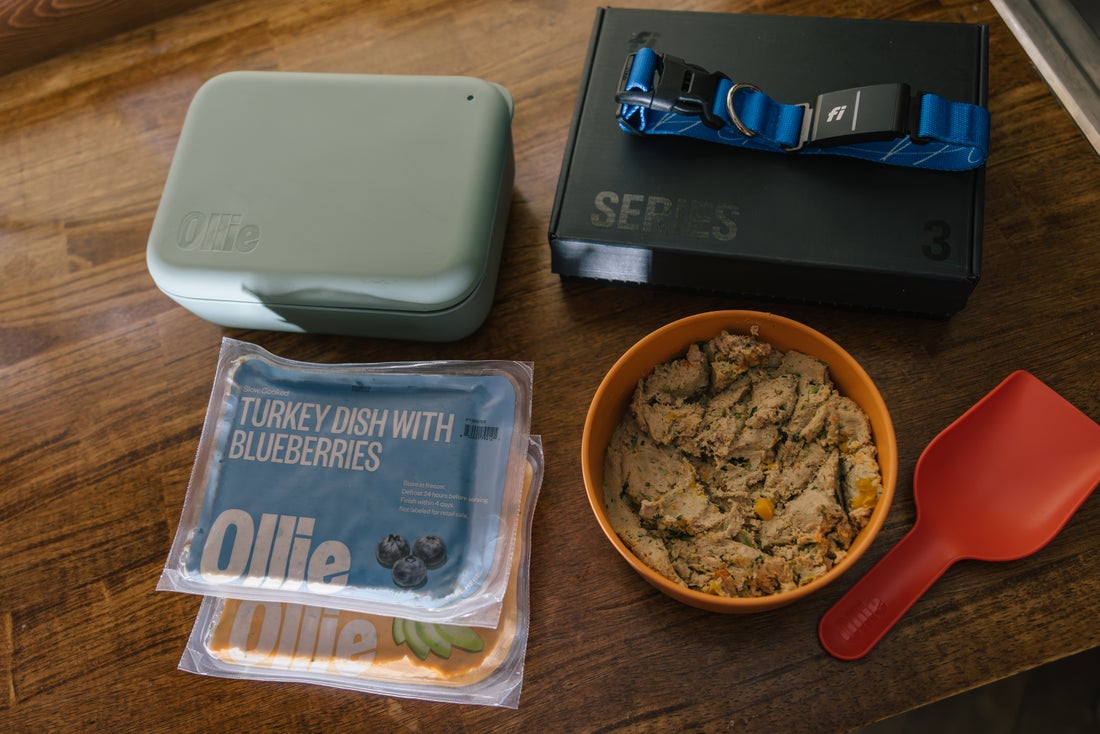Hey Ollie blog readers! We’re offering you an exclusive 60% OFF your starter box! Try now!
Glucosamine for dogs is most often used to treat canine arthritis. Just like humans, dogs can suffer from arthritis as they get older. It may be caused by disease, trauma, or general wear and tear. Arthritis is a painful condition, but glucosamine for dogs may help ease the pain. Glucosamine has also been used to treat a number of other canine health issues, including hip dysplasia and joint problems.
What Is Glucosamine for Dogs?
Glucosamine is a naturally occurring compound that is frequently used to treat and reduce arthritis in dogs, horses, cats, and other animals. Glucosamine is also used to treat hip dysplasia, aid in the treatment of spinal disk injury, and reduce pain following joint surgery.
Glucosamine for Hip Dysplasia in Dogs
Hip dysplasia is a condition that can be extremely painful for your dog. It occurs when the hip joint is malformed, which causes a grinding and rubbing sensation. Glucosamine, either as an over-the-counter supplement or via food ingredients such as bone broth and cartilage, may help strengthen and rebuild your dog’s cartilage. Feeding your pup glucosamine from an early age (especially dysplasia-susceptible breeds such as Labradors and German shepherds) may reduce the chances of hip dysplasia as they age.
Glucosamine for Arthritis or Joint Pain in Dogs
Osteoarthritis in dogs is a degenerative joint disease, and it’s one that nearly 24% of dogs will experience. Glucosamine is an amino sugar that has been proven to increase the synthesis of glycosaminoglycans, a naturally occurring building block of cartilage in canines. Incorporating glucosamine into a dog’s diet may help protect their cartilage, thereby staving off arthritis.
Does Glucosamine Have Side Effects for Dogs?
Glucosamine is largely safe, but side effects do exist. It’s very important to consult a vet beforehand to discuss if glucosamine is an appropriate option for your dog; this will ensure the safety of your pet.
If you do increase your dog’s dosage of glucosamine, be on the lookout for the following potential side effects:
- Fatigue or lethargy
- Insomnia
- Increased chance of diabetes
- Increased thirst
How Do I Give My Dog Glucosamine?
Usually, glucosamine comes in the form of flavored tablets and pills, powders, or liquids, and it’s often prescribed over-the-counter. Some dog foods also contain glucosamine, designed for dogs with poor bone and joint health. But again, it is essential to check in with your vet before giving your dog any supplements, and to follow your vet’s dosage recommendations.
The Ollie blog is devoted to helping pet parents lead healthier lives with their pups. If you want to learn more about our fresh, human-grade food, check out MyOllie.com.
Tagged As:

The nutrition your dog needs,
the food they want.

Enjoying our articles? Subscribe our Newsletters and get new articles directly to your inbox
You might also like
18 September 2025
4 MINS READ
Is Fresh Dog Food Easier to Digest?
Yes, fresh dog food is generally easier for dogs to digest than highly processed kibble. Because it’s made with whole ingredients, gently cooked, and free from unnecessary fillers, fresh food supp…
by Ollie Pets
18 September 2025
5 MINS READ
Can I Rotate Fresh Dog Food Flavors?
Yes, it’s safe to rotate fresh dog food flavors, and many dogs actually benefit from the variety. At Ollie, we offer multiple fresh recipes, like Beef, Chicken, Turkey, Lamb, and Pork so you can…
by Ollie Pets
18 September 2025
5 MINS READ
Is Fresh Dog Food Safe During Power Outages?
Fresh dog food is only safe during a power outage if it has stayed cold, specifically, below 40°F. Once the temperature rises above that point, bacteria can start to grow, and the food may no lon…
by Ollie Pets







